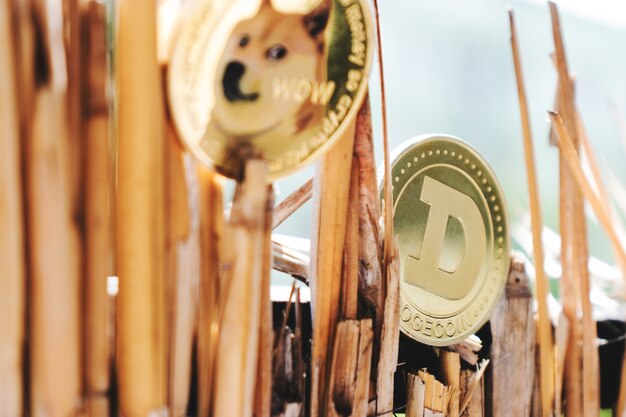Unveiling Bitcoin Mining: A Comprehensive Guide
Bitcoin has become synonymous with the modern concept of digital currency, reshaping how transactions occur across the globe. Central to this revolution is the process of "mining," a mechanism that ensures the security and functionality of the Bitcoin network. If you’ve ever wondered how this process works or why it matters, you’re not alone. Let's dig deeper into the fascinating world of Bitcoin mining and unravel its complexities.
🛠️ What Is Bitcoin Mining?
At its core, Bitcoin mining is the process by which new bitcoins are introduced into circulation and network transactions are confirmed. It is an essential part of the Bitcoin protocol that ensures decentralization, security, and a steady release of bitcoin.
How Does It Work?
- Transaction Confirmation: When transactions are conducted using Bitcoin, they need to be verified. Miners collect these transactions into blocks and validate them.
- Proof of Work: Miners solve complex mathematical puzzles through a system known as Proof of Work (PoW). This mechanism requires significant computational power.
- Block Addition: Once a miner successfully solves the puzzle, the block gets added to the blockchain—a digital ledger that records every Bitcoin transaction.
- Block Reward: For each block added, miners receive a reward. This is how new bitcoins enter circulation. Initially set at 50 bitcoins per block, this reward halves approximately every four years—known as the "halving" event.
🤔 Why Is Mining Necessary?
Mining is essential for several reasons:
- Security: The PoW mechanism ensures that the network is secure from attacks, as altering any aspect of the blockchain requires immense computational resources.
- Decentralization: By enabling anyone with the requisite computational power to contribute, mining supports Bitcoin’s decentralized ethos.
- Supply Control: Through block rewards, mining controls the bitcoin supply, with a cap of 21 million bitcoins to ensure scarcity.
🚀 Starting with Bitcoin Mining
If you’re considering starting with Bitcoin mining, there are fundamental factors to understand. Let's break them down.
Mining Hardware
Different types of hardware are used in Bitcoin mining:
- ASIC Miners: Application-Specific Integrated Circuits (ASICs) are chips specifically designed to mine Bitcoins. They provide the highest efficiency levels compared to general-purpose hardware.
- GPU Mining: Graphics Processing Units have been used historically but are largely replaced by ASICs for Bitcoin mining due to lower efficiency.
- CPU Mining: Central Processing Units were initially used for mining but quickly became obsolete due to their inefficiency.
Mining Software
To engage in the mining process, you’ll need compatible software. This software connects your hardware to the blockchain network and manages the mining operation. Examples of mining software include CGMiner, BFGMiner, and EasyMiner.
Electricity Costs and Environmental Impact
Mining operations consume significant amounts of electricity. Understanding the cost implications and environmental impact is crucial:
- Electricity Costs: The profitability of mining operations hinges on electricity costs, often the most significant expenditure.
- Environmental Concerns: Bitcoin mining has raised concerns due to its large carbon footprint. Consequently, some operations are moving towards renewable energy sources.
💰 Economics of Bitcoin Mining
Understanding the financial implications is integral to any mining operation.
Mining Pools
Mining Pools allow miners to pool resources to solve blocks and share rewards proportionately. Being part of a pool:
- Increases Chances: Pooled efforts increase the probability of solving a block.
- Steady Earnings: Provides regular income, smoothening out the earnings variance that comes with mining independently.
Mining Profitability
Assess the factors that influence profitability:
- Hash Rate: This measures mining efficiency, denoted in hashes per second (H/s). Higher hash rates indicate better chances of solving blocks.
- Bitcoin Price: As market conditions for Bitcoin fluctuate, so does the profitability of mining.
📈 The Evolution and Future of Mining
Mining has evolved significantly from its inception.
The Early Days
Initially, anyone with a computer could mine Bitcoin, but competition and difficulty levels have since skyrocketed due to increased participation and technological progress.
Current Trends
- Industrialization: Modern mining resembles industrial operations more than the hobbyist activity it used to be.
- Geographical Shifts: There have been shifts in mining hubs to regions with cheap electricity, affecting the geographical landscape of mining.
Future Challenges and Innovations
The future of mining could see changes aimed at sustainability and efficiency:
- Technological Advances: Continued innovation is expected in hardware design to improve efficiency.
- Regulatory Oversight: As governments scrutinize Bitcoin mining more closely, increased regulatory measures could be introduced.
📊 Quick Overview: Bitcoin Mining Essentials
Here’s a quick summary of key Bitcoin mining concepts:
| Aspect | Key Point |
|---|---|
| Mining Functionality | Validates transactions and introduces new bitcoins |
| Mining Requirements | Involves hardware, software, and electricity |
| Financial Consideration | Mining pools help stabilize earnings |
| Environmental Impact | High energy use, potential shift to renewables |
| Future Outlook | Continued technological innovation and adaptation |
🤓 Wrapping It All Up
Bitcoin mining plays a pivotal role in securing the Bitcoin network and ensuring its operability. While the landscape of mining is complex, it is essential to understand the intricacies involved, from choosing the right hardware to evaluating profitability. As technologies advance and environmental challenges emerge, the mining ecosystem will likely continue to evolve — focusing on sustainability and regulation.
With a thorough grasp of these concepts, you’re well-equipped to understand how Bitcoin mining operates and its critical place within the cryptocurrency sphere. Whether you're contemplating mining or merely curious, this knowledge empowers you to appreciate the framework of the digital currency miracle we call Bitcoin.

